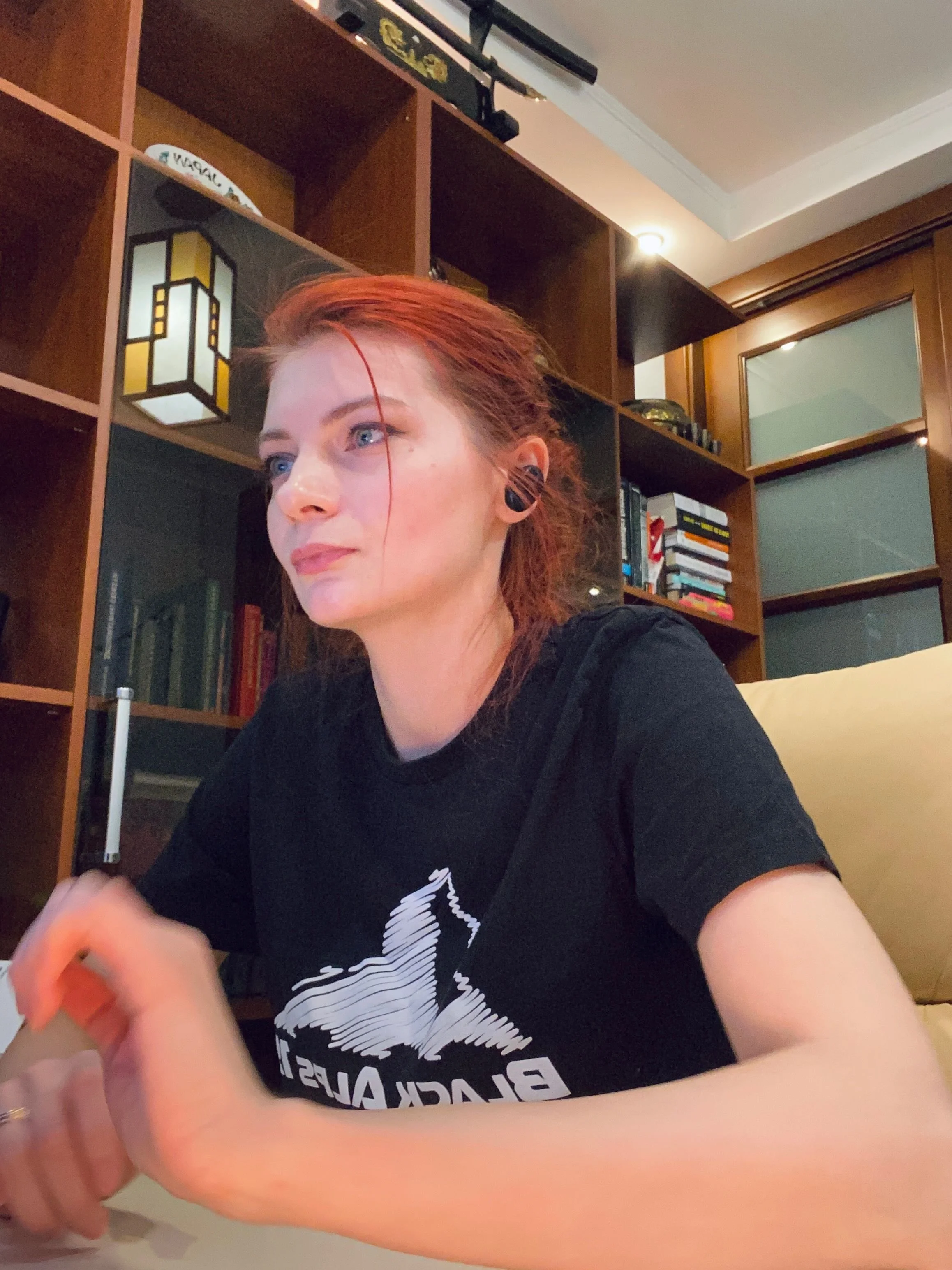A Ukrainian cyber defender looks back after one year of war: "We don’t have a choice”
Software security engineer Anastasiia Voitova works at an unnamed location in Ukraine. Image: Anastasiia Voitova.
BY KERRY TOMLINSON, AMPERE NEWS
One year ago, Russia launched its deadly war against Ukraine. Along with physical violence, attackers tried to break Ukraine down through cyber means.
Now, 12 months later, one of the country's cyber defenders says there is little time to reflect on the past. With so much work to do to protect Ukraine from relentless cyberattacks, she chooses to spend her time working and volunteering to keep malicious hackers at bay.
Watch here:
Bitter Anniversary
One year of war in Ukraine. A year of death. Homes and cities destroyed.
"Ukraine is still standing, " said Anastasiia Voitova, a software security engineer with Cossack Labs. "We're still defending ourselves, and we will continue doing so."
For a year now, Voitova has spent her days and nights working, either at her job or as a volunteer, to help make Ukraine's technology more secure. It's now a life-or-death matter.
"What keeps me motivated? We don't have a choice," she told Ampere News in an interview from Kyiv. "If we want the war to end soon with our victory, we need to do something. It won't magically happen."
Constant cyberattacks
During this year, cyber attackers have tried to shut out the lights in Ukraine, ultimately succeeding with bombs rather than digital means.
They tried to shut off satellite communications, steal sensitive information, and wipe out computer systems crucial to critical infrastructure, and much more.
Russia increased its cyberattacks on Ukraine by 250% in 2022 as compared to 2020, according to a report by Google Threat Analysis Group and security company Mandiant, published this month.
Of special note, the cyber attackers turned more and more to destructive wiper attacks, where they simply destroy data and systems instead of mining them to use against their victims. They used more wipers on Ukraine than any other country at any other time, according to WIRED.
The digital attacks cause chaos and take fewer people to carry out than physical attacks, said Yurii Shchyhol, head of Ukraine’s State Service of Special Communications and Information Protection, in a post on the Atlantic Council site.
Lights Out
Voitova kept working through the many blackouts, relying on battery power and stocking up on supplies.
"I have food, water, power banks, candles, thermos bottle with coffee, bathroom office (no windows, double walls, pillows everywhere), duplicated internet channels, masks, Geiger counter and many more," she tweeted on October 18, 2022. "Russia cannot do anything to stop me from doing what I'm doing."
At one point, 10 million people lost electricity, 1,000 cities were in the dark and up to 80% of people in Kyiv had no running water, according to a report by Microsoft in December.
"Everything is very scary. But when I work, when I do something productive, and when I do something that helps, I don't read news," Voitova said. "And I can think that I'm doing something against this right now. Instead of just reading them or sitting in darkness and thinking of this anxiety stuff."
Secret Code
Voitova's speciality is cryptography, the scrambling of communications to prevent others from seeing them. She has endless opportunities to put her skills to work during the war.
In one case, she helped secure devices that monitor crops in the fields so that attackers could not break in and tamper with the data or the device itself.
"Ukraine is an agricultural country, we have a lot of fields. Those fields right now have very specialized crops. Those crops should be monitored," she said. "During the monitoring, it's possible to alert that something [is] happening and prevent bad circumstances.”
Cutting Edge
She and others have done many more projects, but wartime secrecy will keep the outcome under wraps until the war is over, Voitova said.
It is part of a tech and innovation surge right now in the country, she added, as defenders try to find ways to outsmart the attackers.
"I'm telling you, all of this is kind of important. And very fun," she said. "Except this is war and crazy tragedy."
The crazy tragedy takes its toll on Voitova and her colleagues.
"The joke is that in Ukraine, we don't have PTSD. Because post traumatic means 'post event.' We have an ongoing stress disorder, just because there's so many events are happening ongoing in real life right now," she said. "The mind doesn't have a time to reflect."
"This is a really sad joke. But it kind of explains," she added. "I think that's going to be an issue for after the victory, to deal with all these mental health issues."
The Year To Come
What is the outlook now after 12 months of war have passed?
More cyberattacks, according to the report from Google's Threat Analysis Group and Mandiant.
"We assess with high confidence that Moscow will increase disruptive and destructive attacks in response to developments on the battlefield that fundamentally shift the balance — real or perceived — towards Ukraine," the report concluded.
The war will end soon, Voitova hopes. But there will still be work to do, including protection from the cyberattacks that will likely continue, even if the official war is over.
However, the tech innovation taking place during the war Ukraine now could translate into big benefits during peacetime. Not just for her country, Voitova said, but for the world.
Related stories:
Energy workers in Ukraine battle to stay alive & block digital snipers
“They can torture, they can kill this person”: volunteers patrol Ukraine’s cyber front during war
Cyber attackers try to shut off power for 2 million people in Ukraine
How cyber attackers are targeting industrial machines in 2022 & 2023
More from Ampere News









